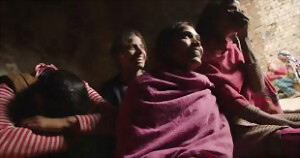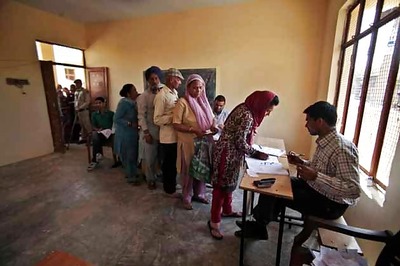
views
Period. End of Sentence
Director: Rayka Zehtabchi
Editor: Sam A Davis
Cinematography: Sam A Davis
The world of Period. End of Sentence is one of uninhibited dreams, of clear skies and open fields. The film, however, is about hope that gets stifled in the wake of patriarchy. But as one of the protagonists says, “We will work hard still,” that sums up the irony.
Rayka Zehtabchi’s short directorial is aimed at unwrapping stigma, fear, insecurity, ignorance and bad education, inherent in a woman’s life. Her tool--a humble looking sanitary pad. The film opens inside a room, two girls in their adolescent years, shying away when asked to talk about menstruation.

Yes that is what we are initially offered with--reality misconstrued and bitter truths that surround menstruating women. Then it slowly starts to unravel the myth.
As is revealed, we all know of it but we don’t talk about it. “Menstruation is the biggest taboo in India”, points out Arunachalam Murauganantham, the social activist from Coimbatore, who is leading the crusade of making India into a 100 per cent sanitary napkin using country.
Zehtabchi presents us with a series of carefully placed interviews, of both men and women, who essentially travel to the heart of the problem/s that come by virtue of being born a woman. Ladies have to walk inside farmlands, or cover long distances during late evenings to dispose off used clothes (makeshift sanitary napkins), and worse still, have to face embarrassment when the said clothes are brought back on streets by stray dogs.
Since serious problems are brewing on surface, a definitive solution needs to be arrived at immediately.
We meet characters that champion the filmmaker’s cause. We are introduced to Sneha, Rekha, Shabana and other unnamed heroes of the film that are entrepreneurial, self-sufficient, smart and empathetic. Here, they are not dealing with issues limited only to their village, but are shouting out at the ones that are much bigger than them.
The capitalist economy is their target, one that is making big bucks by selling the second best thing, only on the basis that their product is backed by some MNC, functioning under the garb of women emancipation. These venturing women want to market their product and in the process, reach out to others like them so that the community grows and benefits.
The technique used by the director in shooting the film is what makes the participating women a significant voice in the narrative. The subject is never placed in front of the camera, while they talk, not unless they want to address us directly. This way, the interviewer gets them to talk about sexual health, safe hygiene practices and their life, freely.
When aspirations are unfazed by reality, yet are grounded in it, the only way is onward and upward. The film clarifies this belief in company of tenacious women, united in shame, joy, love and period.
Period. End of Sentence is currently streaming on Netflix and is nominated for the 91st Academy Awards in the Short Documentary category.
Stars: 3.5/5
Follow @News18Movies for more




















Comments
0 comment